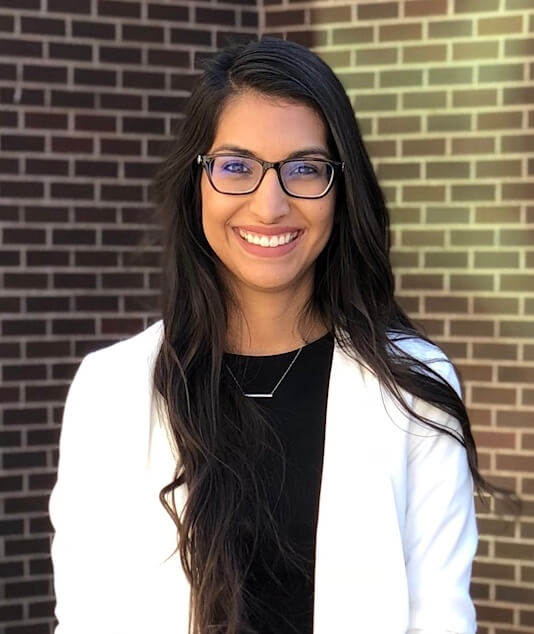 By Andrea Prince, Pharm.D., Ambulatory Care Pharmacy Resident, Cox Health System
By Andrea Prince, Pharm.D., Ambulatory Care Pharmacy Resident, Cox Health System
You’ve seen signs popping up everywhere at businesses selling CBD Oil, but what is CBD Oil? Does it work and is it safe to use? Will I get ‘high’ and fail a drug test? Here’s what you need to know.
What is CBD?
Cannabis is a popular recreational drug that can also be used for medical purposes. The cannabis plant contains hundreds of chemicals including multiple components referred to as cannabinoids. Cannabidiol (CBD) and delta-9-tetrahydrocannabinol (THC) are two major components derived from the cannabis plant and have the most therapeutic interest. These components act differently within the body. THC, commonly referred to as marijuana, has potential health benefits but is commonly known for its psychoactive properties (producing a ‘high’) thus mostly being used for recreational purposes. CBD also has potential health benefits however does not have psychoactive properties (does not produce a ‘high’).
The cannabis family consists of various species including sativa, indica, and ruderalis. In general, Cannabis sativa, indica, and ruderalis can contain various amounts of both THC and CBD based on how they are grown and cultivated (e.g. hemp, marijuana). The chemical profile (content of THC and CBD, often reported as a ratio) of the product is more important than the strain of the plant from which it originated. The cannabis plant can also be used to harvest hemp which is commonly used for industrial purposes such as fiber, seeds, and CBD products.
Will CBD help me?
Despite cannabis being around for hundreds of years, there is inconsistent data regarding the variety of strains, dosing, formulation, safety, and efficacy to recommend. Potential beneficial effects vary based on the dose, specific product used, and the route of administration.
CBD may have the following beneficial effects: pain relief, seizures, antioxidant, muscle relaxation, mood, and sleep. CBD comes in a variety of forms, which include inhalants, suppositories, capsules, edibles, topicals and tinctures.
Is it safe for me to use?
CBD is typically well tolerated and relatively safe. Some of the reported adverse reactions include drowsiness, fatigue, sleep disturbances, weight loss, decreased appetite, diarrhea, anemia, and liver injury. CBD can interact with prescription medications resulting in increased drug levels. Pure CBD is unlikely to lead to dependence. Be aware that some products labeled to contain only CBD may also contain some THC, therefore it could lead to dependence. Urine drug tests screen for THC, however do not test for the CBD component of cannabis. As previously mentioned, some CBD oil products may contain THC and thus have the potential to show up on urine drug tests.
Is it legal?
The legality of cannabis and its various forms is complex. The legality of THC and CBD products varies based on which plant it is derived from (hemp-derived vs marijuana-derived) and by state. Marijuana is considered a Schedule I drug by the federal government. Schedule I controlled substances are illegal to dispense and prescribe. At the state level, each state has their own respective laws on the legality of cannabis.
In Missouri, medical marijuana, marijuana-derived CBD and hemp-derived CBD is legal for medical use while marijuana-derived CBD is illegal for recreational use. Recently passed House Bill 2034 exempts industrial hemp, which is defined as cannabis sativa containing no greater than 0.3% THC, from the definition of marijuana and the list of controlled substances. Additionally, the bill states it is legal for any person with an industrial hemp license to grow, harvest, cultivate, and process industrial hemp. This bill pertains to the use and sale of hemp-derived CBD. With the recent passing of Amendment 2, the state allows for state-licensed physicians to recommend medical marijuana in patients with a qualifying condition. Medical marijuana is projected to be available for purchase as early as January 2020 from a Missouri licensed dispensary. Furthermore, the Missouri Hemp Extract Registration Program allows for the use of CBD in patients with intractable epilepsy. These patients require a registration card that allows for the legal possession and use of CBD oil. Patients registered are able to obtain CBD oil from approved, licensed dispensaries.
How do I know I’m buying a safe product?
Many CBD products that are sold in boutiques, smoke shops, online and gas stations are unregulated. This means it may be difficult to determine the quality of the product as they may not contain the ingredients that are listed on the label. They also may be contaminated with other ingredients or toxins. When purchasing CBD products, it is advised to purchase products that have outside laboratory testing conducted to show the product contains what is stated on the label. Studies examining the label accuracy of CBD products sold online have shown that products can be over-labeled or under-labeled. Additionally, THC has been detected in these products as well.
Several clinical trials are currently being conducted to assist with gaining a better understanding of the health benefits of cannabis, therapeutic strains of cannabis, dosing, routes of administration, and safety. With the law regarding cannabis being a relatively grey area, consumers should weigh the risk versus benefits if interested in purchasing CBD products, look for products with outside laboratory testing, and pay special attention to the ratio of THC to CBD content as well as if the product is hemp-derived vs marijuana-derived.
The bottom line
CBD and THC are both derived from cannabis, however THC produces the effects of feeling “high.”
CBD oil is relatively safe but can interact with prescription medications.
Hemp-derived CBD oil products are currently unregulated so they may not contain what is marked on their label. Consumers should research the product they are interested in using.
The Stone & Taney Counties Substance Use Initiative and the Taney County Alcohol and Drug Abuse Prevention Team (ADAPT) would like to thank Andrea Prince for writing this article. If you are interested in more information about local resources, please visit www.drugfreeozarks.org and www.taneycountyadapt.com.

